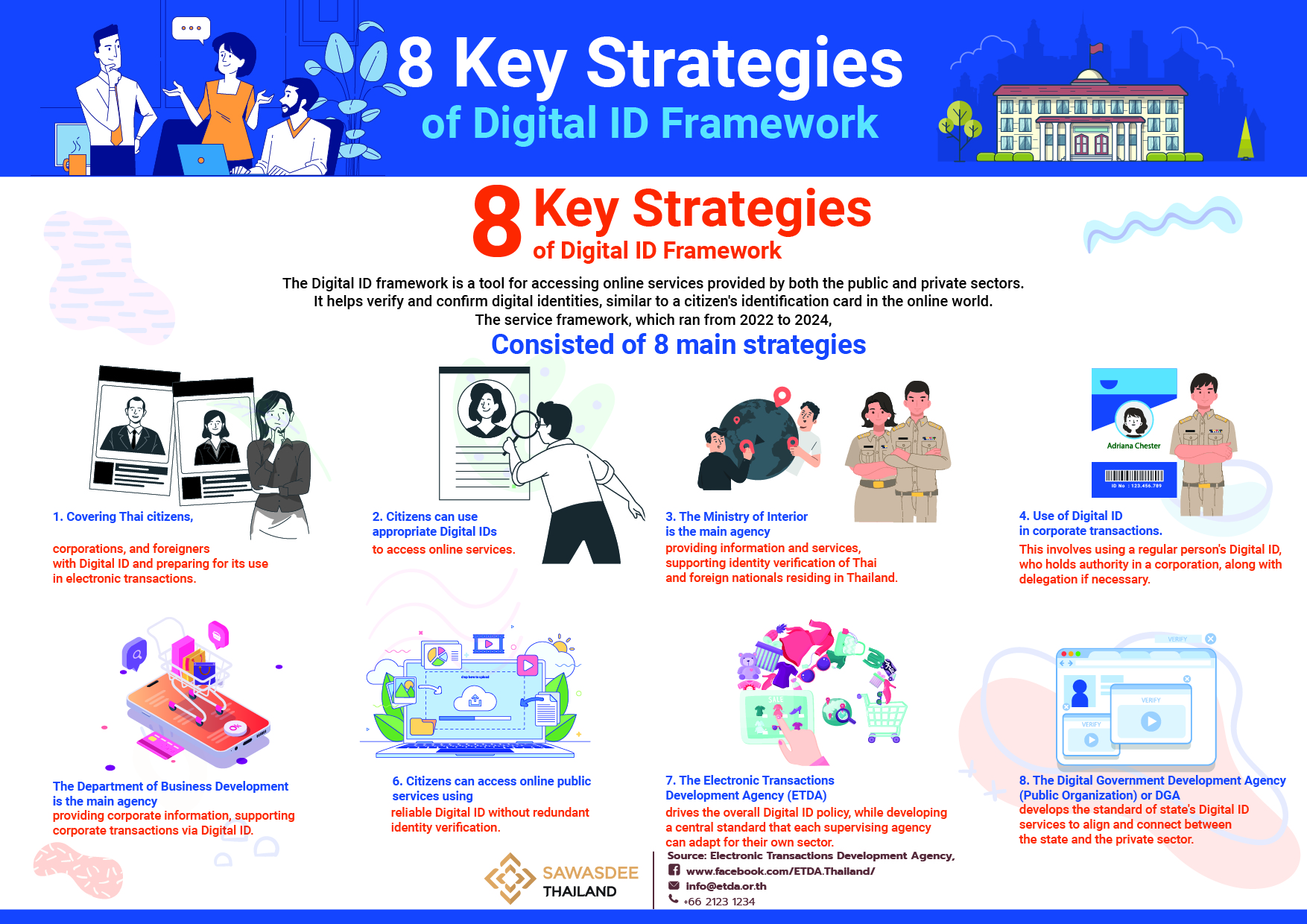
The Digital ID framework, driven by government policy, seeks to bring Digital ID services to the public. This aims to streamline access to online services provided by both public and private sectors, by simplifying the process of digital identity verification and authentication. Essentially, it serves as an online national ID card answering the question: "Who are we?"
The owners of these IDs can access various digital services from both the public and private sectors conveniently, anywhere and anytime. These digital ID services are secure and trustworthy, and can't be falsified. This elevates the service provision by the public and private sectors to a higher level of efficiency, flexibility, and security.
The Digital ID framework comes into existence due to the collaborative efforts of multiple parties. This collaboration resulted in the creation of the "Framework for driving the provision of digital identity verification and authentication services in Thailand Phase 1, 2022-2024". This serves as a guideline for the country in integrating cooperation and driving work in the same direction.
The first phase of the Digital ID framework comprises 8 key strategies:
Currently, pioneering uses of the Digital ID framework services have been launched, such as identity verification via Digital ID for online tax filing with the Revenue Department, self-address change reporting with the Department of Provincial Administration, or opening a deposit account with a commercial bank. The concerned agencies continue to accelerate these services to increase their number, diversify, and ensure the readiness of underlying infrastructure and services, covering the use of individuals, corporations, and foreigners.
Data updated on
Source: Electronic Transactions Development Agency, 33/4 Rama IX Rd, Huai Khwang Sub-district, Huai Khwang District, Bangkok.
Tel. +66 2123 1234
